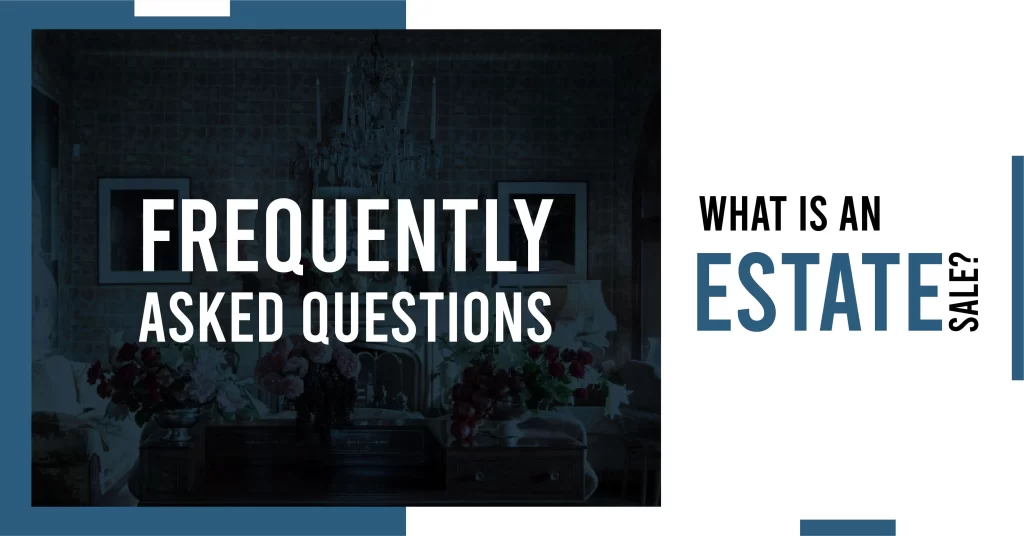
What Is An Estate Sale? Get More Information On Estate Services 🏡
When pondering on the question, “What is an estate sale?“, many might imagine a large yard sale. However, it is much more than that. An estate sale is an event where the possessions of a deceased person, or someone Looking to downsize in Vancouver or relocate, are sold to the public. Unlike a typical garage sale, an estate sale encompasses a majority, if not all, of a person’s belongings — from furniture and antiques to clothing and personal belongings. This process often requires the expertise of professional estate services to organize and manage, ensuring an efficient and beneficial experience for all parties involved.
Additionally, estate sales offer a unique opportunity for buyers to discover rare and valuable items that have often been collected over a lifetime. These sales can be a treasure trove for collectors, interior designers, and everyday bargain hunters alike. The diverse array of items, each with its own history and story, sets estate sales apart from regular sales. For the seller, it provides a structured way to liquidate assets, while for the buyer, it is a chance to find unique pieces that add value and character to their own collections or homes.
How Does An Estate Sale Work?

Initial Consultation
Most estate sales begin with an initial consultation between the estate sale company and the client, which is usually free. The company assesses the items for sale to determine their value and to estimate potential revenue.
Inventory And Pricing
The estate sale company catalogs and prices each item. Professionals use their experience, research, and sometimes even expert appraisers to set competitive prices.
Advertising
The company markets the sale, often through their website, email lists, social media, and local classifieds to attract potential buyers.
Staging
Items are organized, displayed, and staged in a manner that is appealing to potential buyers. This can include setting up tables, shelves, and sometimes even creating themed rooms.
Conducting The Sale
On sale days, the company manages everything from crowd control to handling transactions. Sales can last from one to several days, depending on the size of the estate.
Payment
After the sale, the estate sale company usually takes a percentage of the total revenue as their fee. The remaining profit goes to the client.
Cleanout
Post-sale, some companies offer an Estate Cleanout Service Vancouver where unsold items are donated, discarded, or auctioned off. The property is left clean and empty.
Finalizing the Deal
The client and the estate sale company settle up, with the client receiving their portion of the proceeds and a detailed account of items sold.
It is essential for those interested in holding an estate sale to do their due diligence, read reviews, and get referrals to choose a professional estate sale company. The goal is a mutually beneficial event where items are sold at fair prices, and both the client and the company are satisfied with the outcome.
Why Have An Estate Sale?

Dealing With A Large Volume Of Possessions
One of the primary reasons people have estate sales is to manage and liquidate a substantial amount of items, especially after the passing of a loved one or a significant life event.
Downsizing
Individuals or families moving to a smaller residence might not have the space to keep all their material belongings, making an estate sale a practical solution.
Relocating
Those moving long distances or overseas often opt for estate sales to lighten the load and simplify their move.
Financial Needs
An estate sale can be a means to quickly raise funds to cover debts, medical bills, or other unexpected expenses.
Efficiency
Unlike piecemeal selling, estate sales allow for the quick and efficient sale of many items in a short period.
Professional Management
Expert estate sale companies handle pricing, advertising, and sales logistics, reducing the burden on the family or individual.
Maximizing Profit
Professionals have the expertise to price items competitively, often fetching higher prices than if sold individually by the owner.
Clearing A Property
After events like a death or a move, estates need to be cleaned out quickly, especially if they are to be sold or rented out. An estate sale helps expedite this process.
Flexibility
Estate sale companies can tailor the sale to the client’s needs, whether it is selling a particular collection or emptying an entire property.
Recycling And Repurposing
Instead of discarding leftover items, estate sales give belongings a new lease on life in another home, promoting sustainability.
Ultimately, having an estate sale can provide a structured and efficient way to handle significant transitions, offer financial benefits, and bring peace of mind during potentially stressful times.
Estate Sale Vs. Estate Auction: What Is The Difference?

Estate sales and estate auctions are both methods of liquidating a person’s belongings, but they operate in distinct ways and offer different experiences for both sellers and buyers. Here’s a breakdown:
Nature of Sale
- Estate Sale: Items are priced individually with tags, much like in a retail setting. Buyers can view and purchase items immediately at the set price.
- Estate Auction: Items are presented for bidding. An auctioneer calls out each item, and interested parties place bids. The highest bidder wins the item.
Pricing
- Estate Sale: Items have fixed prices, though some haggling might be allowed, especially as the sale progresses.
- Estate Auction: Items do not have set prices. They start at a base price, and buyers compete by placing progressively higher bids.
Duration
- Estate Sale: Can last multiple days, often with prices decreasing as the sale progresses.
- Estate Auction: Typically a single event, sometimes lasting just a few hours, depending on the number of items.
Atmosphere
- Estate Sale: More relaxed, allowing prospective buyers to browse at their own pace.
- Estate Auction: More dynamic and fast-paced, with the auctioneer leading the proceedings.
Sales Strategy
- Estate Sale: Ideal for a large number of items, with the aim to sell over several days.
- Estate Auction: Suitable for expensive items or when a quick liquidation is desired.
Payment
- Estate Sale: Buyers pay the marked price or the negotiated price.
- Estate Auction: Buyers pay the winning bid amount.
Outcome
- Estate Sale: Not all items might sell, and prices may be reduced over time.
- Estate Auction: Items usually sell, but there is uncertainty about the final sale price.
Professional Assistance
- Estate Sale: Managed by estate sale companies or agents who specialize in pricing, staging, and sales.
- Estate Auction: Conducted by auctioneers who are skilled in generating profits and managing competitive bidding.
Deciding between an estate sale or auction depends on the specific needs, goals, and circumstances of the individual or family. It is essential to understand the benefits and potential challenges of each approach to make an informed decision.
What Is An Estate Sale?: Frequently Asked Questions (FAQs)

Where Are Estate Sales Held?
Estate sales are primarily held at the residence of the individual whose belongings are being sold. This allows potential buyers to view valuable items in their original context and makes the logistics of moving large or numerous items unnecessary. However, in some cases, particularly in areas with restrictions or if the home is not available, unsold items might be transported and sold at an alternate location, like a warehouse or event space.
What Is The Best Month To Have An Estate Sale?
The best month for an estate sale can vary depending on the region. In general, spring and early fall are considered ideal times because the weather is typically mild, making it comfortable for buyers to stand in line or browse outdoors. Summer can also be suitable, though extremely hot days might deter attendance. Winter months, especially in areas prone to snow and ice, can be challenging due to potential weather-related complications.
What Does It Mean When A Sale Is Subject To Probate?
When a sale is “subject to probate,” it means the transaction, usually regarding real estate or significant assets, requires approval from a probate court. This situation typically arises when the owner of the assets has passed away without a clear will or estate plan in place. The probate court oversees the distribution of the deceased’s estate to ensure debts are paid and assets are distributed fairly among heirs. Until the legal counsel gives its approval, the sale cannot be finalized.
What Is The Difference Between An Estate Sale And A Garage Sale?
While both involve selling items, an estate sale typically involves the sale of most, if not all, of a person’s belongings, often due to significant life events like death, downsizing, or relocation. Garage sales, on the other hand, are more casual events where homeowners sell unwanted items.
Can I Negotiate Prices At An Estate Sale?
While prices are set, some negotiation may be allowed, especially on the last day of the sale or for high-priced items. Each estate sale company has its own policies regarding haggling.
Wrapping Up
Understanding the nuances of estate sales, from their location and timing to the legal intricacies involved, is crucial for both sellers and buyers. Whether you are navigating the waters of downsizing, dealing with the passing of a loved one, or simply exploring the world of estate sales as a buyer, knowledge is key.
Being informed not only ensures a smoother process but also helps in making decisions that best align with individual needs and circumstances. As with any significant endeavor, thorough research, consultation with professionals, and careful planning are the cornerstones of a successful estate sale experience.

Recent Comments